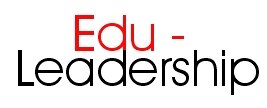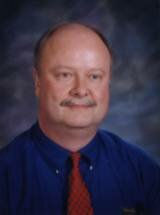
|
New Help for School Administrators
by Roberta Furger
"[The principalship is] a position that is absolutely critical to educational change and improvement. A good principal can create a climate that can foster excellence in teaching and learning, while an ineffective one can quickly thwart the progress of the most dedicated reformers." Secretary Riley's words, spoken during one of the Department of Education's Town Meetings in June of 1999, echo the sentiments of educators and policymakers throughout the country. And yet, until fairly recently, meaningful, ongoing professional development for the nation's instructional leaders has been the exception, not the rule. All that's changing, though, as more and more local, state, and national educators hold their principals accountable for the success and failure of their students. In its 2001 budget, the Clinton administration proposed allocating $40 million toward its School Leadership Initiative, a plan to establish regional training centers for principals. Throughout the country, many private foundations are also earmarking significant dollars to programs and research related to professional development for principals. Many of these new initiatives have a two-pronged focus: helping principals develop strong organizational and leadership skills and providing them with tools and strategies for improving academic performance. That's as it should be, says Dr. Vincent L. Ferrandino, executive director of the National Association of Elementary School Principals (NAESP). He notes that the most effective professional development program is one that is based on the specific circumstances in which a principal is working. Other key components of an effective professional development program for principals, says Dr. Ferrandino, include:
At leading educational institutions like Harvard University and the University of North Carolina (UNC) at Chapel Hill, continuing education and professional development courses have been serving principals for nearly two decades. And as school districts throughout the country focus on raising standards -- the principal's critical role in that process -- these higher education centers are responding with new programs designed to meet changing needs. While they haven't abandoned their discussion of educational theory, center leaders recognize the importance of providing nuts and bolts assistance to help meet the challenges facing school site administrators today. Take, for example, the Higher School Performance Program offered by UNC's Center for School Leadership. This two-year-old program, which is part of UNC's Principals' Executive Program (PEP), was designed specifically to address the needs of principals at low-performing schools -- schools that find themselves at risk of not making state-assigned progress on the standardized test. For that reason, hands-on data analysis (of school test scores, parent and teacher survey results, and more) is an integral component of the Higher School Performance Program. Participants bring data from their own school with them, explains PEP assistant director Alice Maniloff, so the analysis - and subsequent corrective measures - are specific to their particular school and circumstances. Once participants have a handle on the data, the next step is to focus on programmatic and structural changes to improve academic achievement. Topics addressed include aligning curriculum to meet state standards, instructional monitoring, and teacher support and supervision. Help from Critical FriendsIn addition to five intensive, three-day sessions on the UNC campus, principals receive year-round support from retired administrators - called critical friends - who act as mentors to their less-experienced colleagues. "The principals were coming to Chapel Hill to have hands laid on them, to learn the word," says Maniloff. "But I realized what would really make a difference for participants was a supportive person - someone they could talk everything over with and get advice from throughout the year." As with any mentoring program, matching up participants was one of the most difficult -- and crucial --- aspects of the program. Maniloff and her associate, Kathy Tuten, visited the principals' schools and met with or spoke to all of the mentors before final matches were made. They then held a day-long introductory session for the mentors at the UNC campus to prepare them for the task that lay before them. "I didn't want them to go and take over," says Maniloff. "We talked about what it means to be a mentor, about active listening and about developing rubrics to follow." A second session for mentors was held during the school year. Reflections of a PEP AlumnusMike Chappell knows what it's like to be in the hot seat. Like every school principal in North Carolina, he's on the front lines in the ongoing struggle to raise student achievement. And like his counterparts at schools throughout the state, he's accountable for the success - or failure - of his students. Given the high stakes of student achievement in North Carolina - school staff receive bonuses when students do well on state tests, and outside "improvement" teams are assigned to turn around the lowest schools - it's no surprise that Chappell, principal of Zebulon Elementary School (a part of the Wake County Public School System in Zebulon, North Carolina) does whatever he can to stay on top of statewide standards and assessment trends. But that doesn't mean he takes whatever professional development offerings come his way. "I always ask myself, 'Is the time I'm going to put in worth what I am going to get out?'" explains the principal of four years. When Chappell read about the Higher School Performance Program he knew immediately it was the course for him. "PEP has been around for a number of years, but it had always been a fairly generic sort of 'boot camp' for principals," explains Chappell. The Higher School Performance Program, in contrast, is a highly-focused effort to help principals of struggling schools achieve higher academic achievement. Chappell was a member of the first cohort of principals to participate in the year-long program and says it provided just the right mix of theory and practical application. During five multi-day sessions on the UNC campus, participants wrestled with test score data, studied different methods of curriculum development, and explored such critical issues as student conduct, instructional monitoring, and teacher support and supervision. In addition to the five trips to UNC, Chappell worked with a retired principal, David Bryant, who served as his mentor and coach throughout the school year. "I'd tell David about a project or a change I was considering and he would give me his honest opinion. He told me when he thought something would work and when he thought we weren't quite ready," recalls Chappell. Bryant met with Chappell several times during the school year. Between visits, the pair kept in touch via e-mail. Portable KnowledgeAlthough Chappell has since moved on to a new principal position, he says the skills and strategies he learned during his year in the Higher School Performance Program have been invaluable at his new school. Through the program's detailed data analysis sessions, Chappell came away with not just an understanding of his own school's test scores but a much more refined sense of how to evaluate programs, scheduling, and class assignments to improve performance. Those are skills and lessons that can apply to any principal position at any school. "We looked at performance in terms of student placement, instructional technology, textbooks, teaching style - from every angle you could imagine - even the daily schedule," says Chappell. The net result, he adds, is that he learned how to turn data into action. |
Copyright 2000 © The George Lucas Educational Foundation www.glef.org
